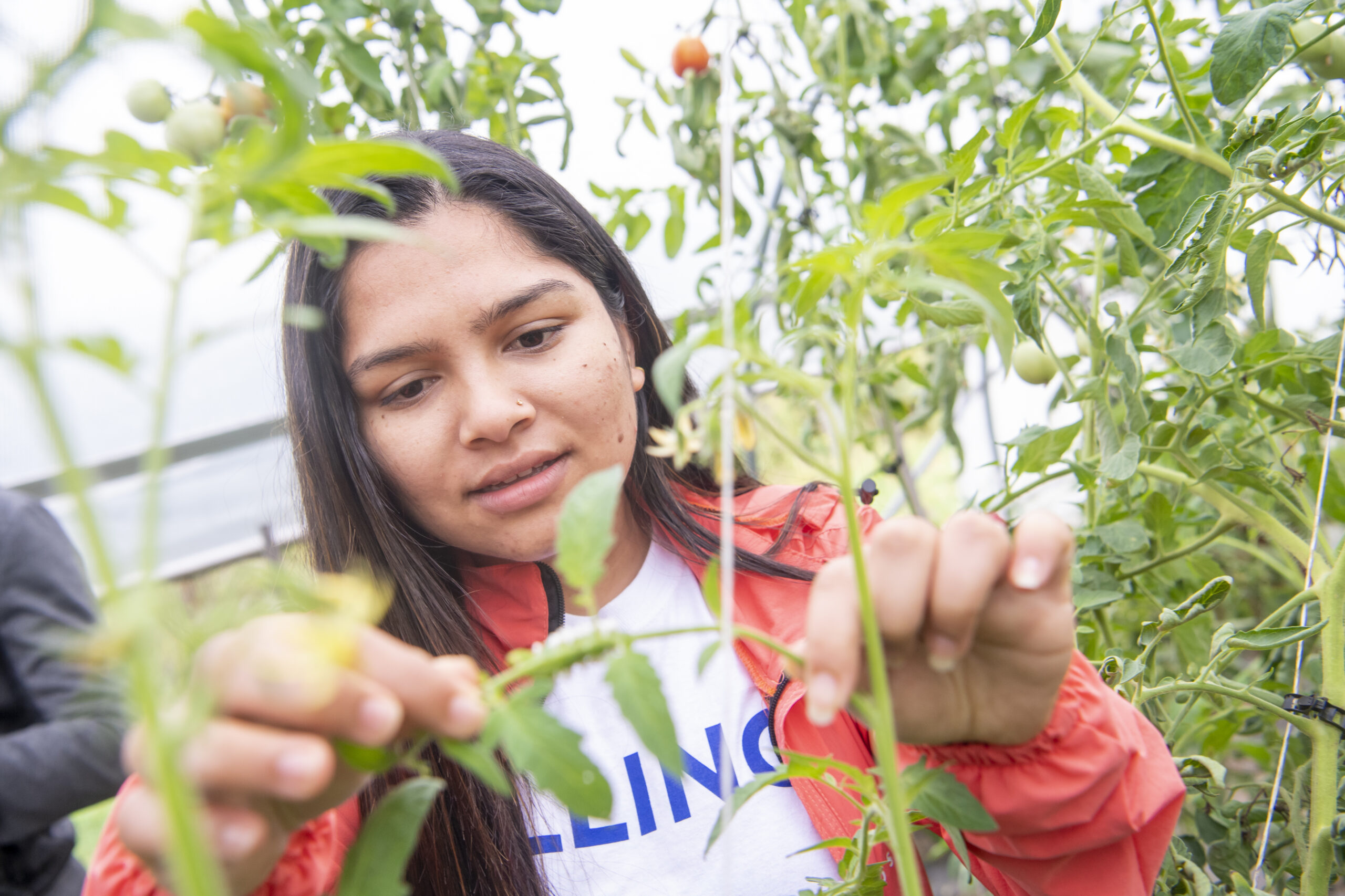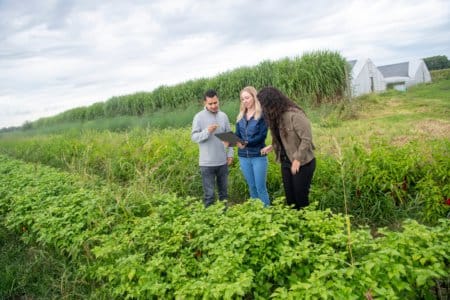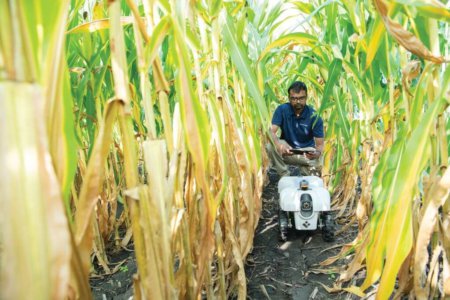UIUC College of Agricultural, Consumer and Environmental Sciences (ACES) is among the top agricultural schools in the world, and there are many reasons why. The college’s programmes, while varied in nature — from engineering to finance, economics and law, to nutritional science and communications — come together with a united goal to make the world a better place. As such, its mission is to ensure nutritious and safe food, sustainable and innovative agriculture, strong and economically resilient families and communities, and environmentally sustainable use of natural resources to benefit everyone.
ACES programmes are rooted in research. While much of the college’s work is multidisciplinary, its research falls into four broad categories: Agriculture and Environment, Data and Technology, Family and Communities, and Health and Wellness. The college’s findings benefit communities from all over the world. ACES has partnered with institutions in more than 120 countries, creating a global community of scholars who can share ideas and research back and forth. Faculty are engaged with fellows from different countries to develop collaborative courses and host internships with foreign universities. As a result, students not only participate in internships but also get to volunteer, travel around the country, and explore through over 400 study-abroad opportunities.
ACES believes hands-on experience is vital as we all learn better by doing. “ACES provides a plethora of resources to help students translate what they learn in class, allowing them to be more ready for the real world,” says Stuart Seputro, an alum with a bachelor’s degree in plant biotechnology from Indonesia, who is now working as a plant genetics and bioinformatics researcher on campus. During his programme, he was heavily involved in several student organisations — including vermiCUlture, an environmental organisation focused on addressing climate change — that helped him become more adept at managing and working with people.
Seputro’s degree also exposed him to research projects. “This type of experiential learning helped me understand better what I learned in class and gave me the opportunity to pick up various soft and technical skills that are useful in the research world,” he says. Seputro also worked with Dr. Dean Riechers from Crop Sciences to validate the effect of a new herbicide-resistant gene in wheat using genome editing techniques.
Within just six months of graduating, 94% of ACES students are employed or working toward a graduate degree. In fact, about one-third pursue advanced degrees in science, business, medicine, health and well-being, and education. In ACES, you have a wide array of job prospects open to you because of the academic excellence upheld by each of the nine departments.

No matter which department or programme you choose, ACES ensures students have a fulfilling experience. Source: UIUC College of Agricultural, Consumer and Environmental Sciences
With an undergraduate degree from the Agricultural and Biological Engineering department, students can work in academia, consulting firms, Fortune 500 companies, government agencies, non-profit groups, or research institutions. The two undergraduate majors offered are Agricultural and Biological Engineering (ABE) and Engineering Technology and Management for Agricultural Systems (ETMAS).
The Agricultural and Consumer Economics department features core classes that introduce you to economics, finance, marketing, quantitative methods, laws, and policies with examples from agricultural and environmental sectors. The Agricultural Leadership, Education and Communications programme boasts student-centred and active learning approaches.
In Food Science and Human Nutrition, students develop the leadership skills to create positive change on local and global scales. There are four majors, so you may tailor your education to your desired career. The Human Development and Family Studies department has programmes that promote the health and well-being of children, youth, adults, and families, whereas the Natural Resources and Environmental Sciences department provides four concentrations that prepare students to address critical environmental issues.
While the Nutritional Sciences department only offers graduate programmes or certificates, the Animal Sciences department gives students the option to take Animal Sciences as a major or a minor, opt for the Computer Science + Animal Science major, or consider a 4 + 1 bachelor + master of animal sciences (non-thesis) programme. Finally, the Crop Sciences department leads undergraduate majors like agronomy and plant biotechnology.
No matter which department or programme you choose, ACES ensures students have a fulfilling experience that gets them where they need to go. Many students like Luana Benicio who is from Sao Paulo, Brazil, and in the Animal Science programme, appreciate the community and campus life. “I fell in love with the campus,” she says. “What I have liked most about being a student in ACES is having the chance to integrate with other people outside my lab and having the opportunity to learn a lot from them. There is so much to get involved in on campus and in ACES where I can expand my learning, and that has been an important part of my learning experience.”
To find the UIUC College of Agricultural, Consumer and Environmental Sciences programme that speaks to you, click here.
Follow UIUC College of Agricultural, Consumer and Environmental Sciences on Facebook, Twitter, LinkedIn, Instagram and YouTube.













